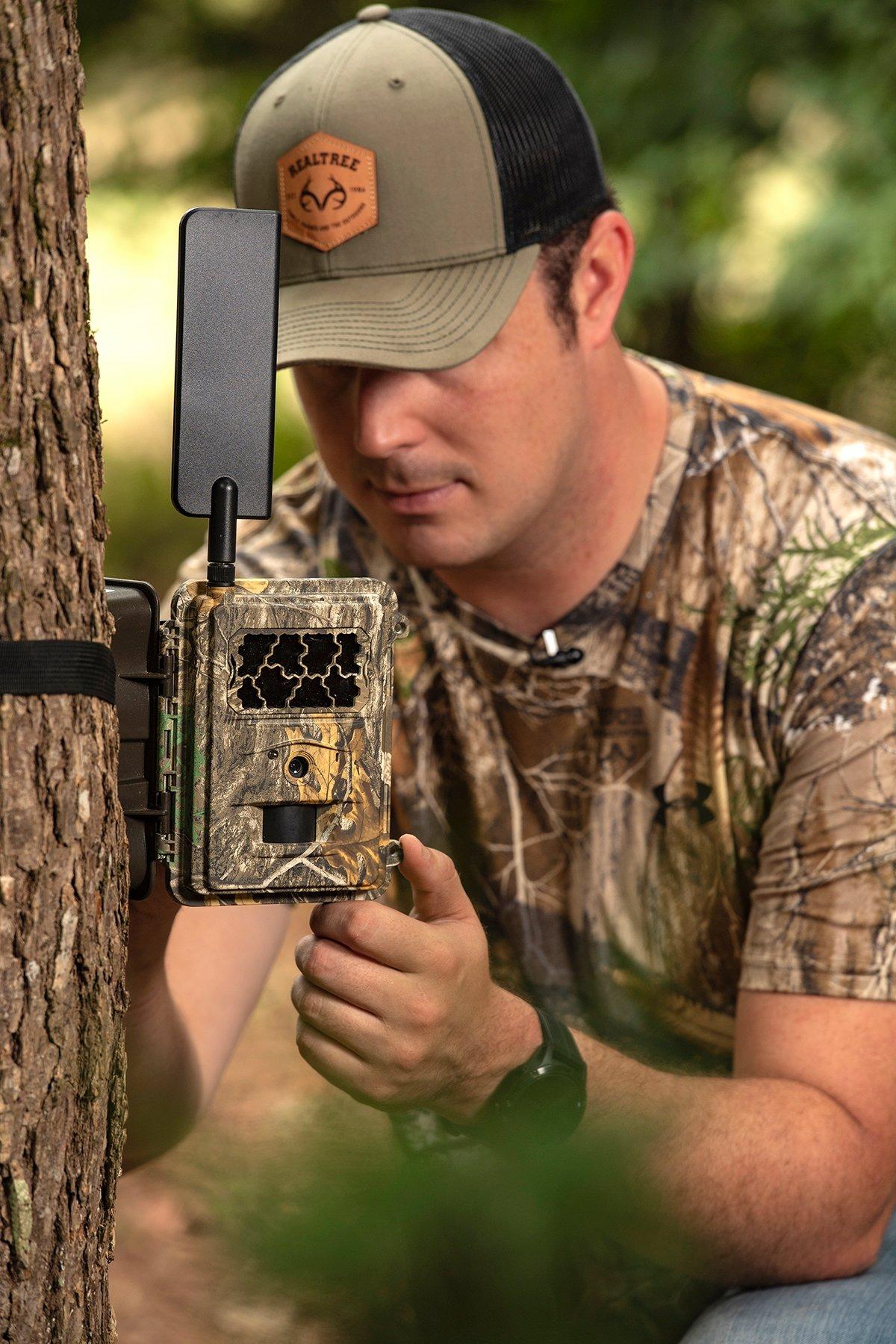Some western states have made big changes around the use of wireless cameras. Could Eastern whitetail states be next?
Earlier this year Utah joined Arizona and Nevada in banning the use of all trail cameras for hunting. Montana prohibits the use of cellular cams during hunting season. Could similar restrictions move eastward to states where millions of us chase whitetails, and where millions of us use trail cams extensively for scouting and hunting?
Reasons for Camera Bans
The western bans are not about whitetails, but elk and mule deer. Wildlife officials point to chaotic scenes of hunters and outfitters hanging 30 to 50 or more cams on a single waterhole as they scout for bulls on public land. Situations like that, magnified by recent drought conditions, are untenable, putting undue pressure on elk herds and causing trouble among hunters.
You can't have people stealing cameras or fighting over them. With 10 or 20 hunters posted on a water source, somebody could get hurt or worse. Through this lens it's hard to argue with the western bans.
But the bigger issue — and the one that could cause camera bans to creep into whitetail country — is the question of fair chase. In public opinion surveys that preceded the votes on cameras, western officials indicated that majorities of hunters agreed that trail cameras, especially wireless models that send images to your cell phone, give hunters an undue advantage over game.
This I take with a grain of salt. When it comes to equipment, many of the western hunters I know, especially the die-hard bowhunters, are anti-technology, and vocal about it. They show up in numbers at public meetings and fill out surveys, and, I believe, skew the vote.
(Don't Miss: Ghost Busters: What to Do When Your Buck Disappears)
Will Midwestern and Eastern States Restrict Cameras?
In the East, a clear majority of whitetail hunters seem to be either pro-camera or neutral about them, at least in my experience. If you asked hunters in Iowa, Pennsylvania, or Georgia if trail cameras should be banned, I'd bet seven or eight of 10 respondents would vote no. In most states, there is little sentiment for more restrictive hunting regulations.
Still, the question does pop up on occasion. In 2015 wildlife officials in New Hampshire wrote into their regs: It is unlawful to use live-action game cameras while attempting to locate…or take any game animal…during the same calendar day while the season is open (cameras that send an electronic message or picture to a handheld device or computer when sensors are triggered by wildlife). This was the first prohibition on cameras in the Eastern half of the country, and the first time the ethics of cellular cams was questioned.
New Hampshire is not a major whitetail state, so this restriction went largely unnoticed until last December, when the Boone & Crockett Club quietly released this update to its position statement on technology:
The use of any technology that delivers real-time location data (including photos) to target or guide a hunter to any species or animal in a manner that elicits an immediate (real-time) response by the hunter is not permitted.
So, if you go out and shoot a 190-inch-net wild buck this fall but used a wireless camera to scout it on the same day that you shoot it, that giant might be excluded from the record book. According to B&C, you did not kill it fair chase.
Oh, but I think you did. While it could conceivably happen that a hunter gets a picture of a mature buck in a food plot and then hustles over to kill it on the spot, such a scenario would be an overwhelming exception. Mature buck behavior and movements aside, depending on an area's cell coverage, it can take minutes, hours or even days for images to transfer to a phone — if they transmit at all.
Still, a respected organization like Boone and Crockett raising the stakes on fair chase will have state wildlife departments taking a closer look at trail cameras, and especially wireless models. Ohio already did, and a wildlife manager there said in a newspaper interview that while there's been no discussion of enacting camera restrictions with continually evolving technology, we have to evaluate.
In what would have been a game changer, I heard recently where Kansas had restricted the use of wireless cameras. But turns out that's a rumor, according to my sources who hunt and guide there. At least for now.
And also for now, I'll keep using and enjoying my cameras, while keeping a lookout for what might come next.
(Don't Miss: 5 Advanced Trail Camera Tactics)








